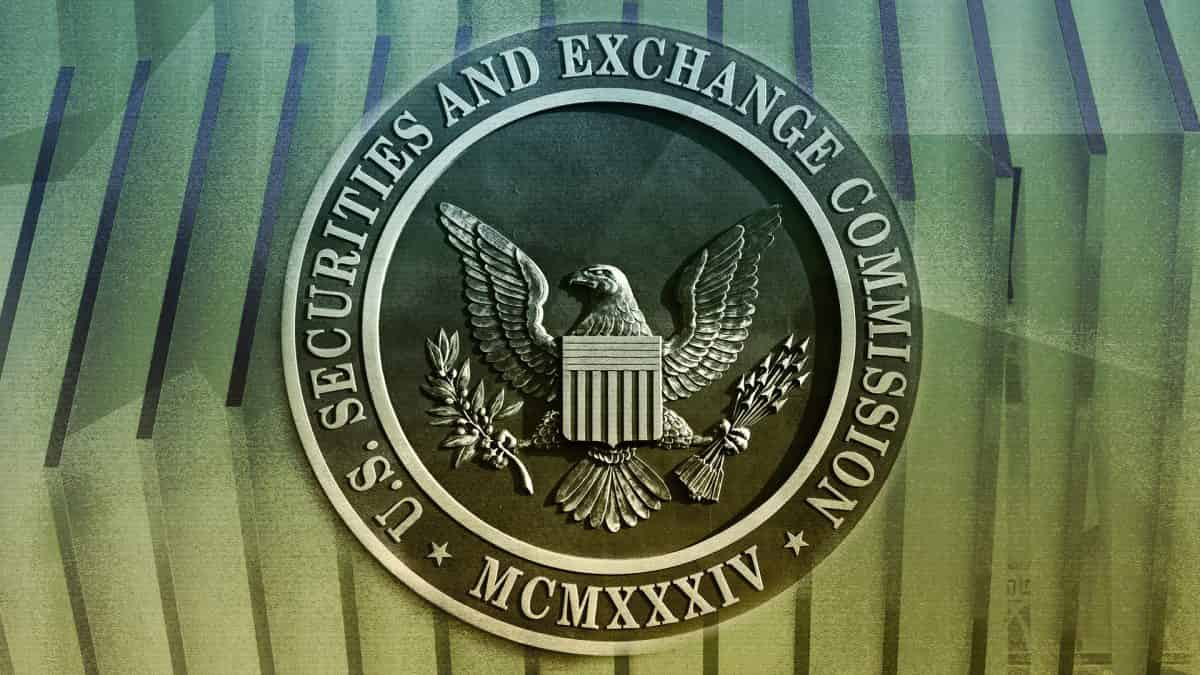Days after Gensler leaves, SEC rescinds controversial crypto accounting guidance SAB 121
Quick Take The SEC’s move on Thursday marks another shakeup in the agency and a potentially new era of regulating crypto. “Bye, bye SAB 121! ” said SEC Commissioner Hester Peirce on Thursday in a post on X.

The U.S. Securities and Exchange Commission has revoked controversial crypto accounting guidance following upheaval from lawmakers and the crypto industry alike.
The SEC's move on Thursday marks another shakeup in the agency following former SEC Chair Gary Gensler's resignation and a potentially new era of regulating crypto. The agency issued Staff Accounting Bulletin No. 122 , which "rescinds the interpretive guidance included in Topic 5.FF in the Staff Accounting Bulletin Series entitled Accounting for Obligations to Safeguard Crypto-Assets an Entity Holds for its Platform Users."
"Bye, bye SAB 121! " said SEC Commissioner Hester Peirce on Thursday in a post on X. "It's not been fun…"
Peirce previously denounced SAB 121, calling it a “pernicious weed,” back in April at an event.
The crypto industry raised concerns about SAB 121 over the past year. The bulletin requires firms that custody cryptocurrencies to record their customers' crypto holdings as liabilities on their balance sheets.
Last year, lawmakers went so far as to vote on a measure to repeal that guidance, only to be vetoed by then-President Joe Biden. The House previously voted 228-182 to pass the measure, with mostly Republicans, though 21 Democrats signed on. A week later, the Senate voted 60 to 38, with several Democrats, including Senate Majority Senate Majority Leader Chuck Schumer, D-N.Y., voting in favor of the measure.
The SEC's leadership was shaken up following Gensler's exit on Monday leaving Republican Commissioner Mark Uyeda in charge as acting chair. On Tuesday, Uyeda announced the launch of a crypto task force with fellow Republican Commissioner Peirce at the helm.
"To date, the SEC has relied primarily on enforcement actions to regulate crypto retroactively and reactively, often adopting novel and untested legal interpretations along the way," the SEC said in on Tuesday in a statement . "Clarity regarding who must register, and practical solutions for those seeking to register, have been elusive."
Gensler took a different approach in regulating crypto and had called on firms to register with the SEC and lodged lawsuits against those that didn't comply. He has also warned that crypto is "rife with bad actors."
The SEC did not immediately respond to a request for comment.
Update: Jan. 23, 11:30 p.m. UTC to include more details
Disclaimer: The content of this article solely reflects the author's opinion and does not represent the platform in any capacity. This article is not intended to serve as a reference for making investment decisions.
You may also like
VIPBitget VIP Weekly Research Insights
As the crypto market recovers in 2025, Digital Asset Treasury (DAT) firms and protocol token buybacks are drawing increasing attention. DAT refers to public companies accumulating crypto assets as part of their treasury. This model enhances shareholder returns through yield and price appreciation, while avoiding the direct risks of holding crypto. Similar to an ETF but more active, DAT structures can generate additional income via staking or lending, driving NAV growth. Protocol token buybacks, such as those seen with HYPE, LINK, and ENA, use protocol revenues to automatically repurchase and burn tokens. This reduces circulating supply and creates a deflationary effect. Key drivers for upside include institutional capital inflows and potential Fed rate cuts, which would stimulate risk assets. Combined with buyback mechanisms that reinforce value capture, these assets are well-positioned to lead in the next market rebound.


Data: Bitcoin spot ETF saw a net inflow of $741.79 million yesterday
